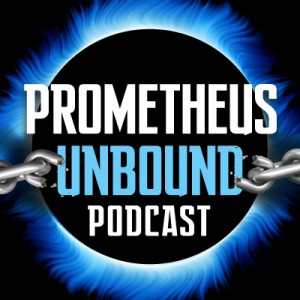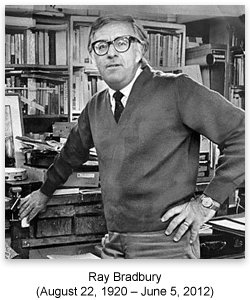
At long last, here is the first episode of our new, original podcast.
First, Matthew and I break the ice by briefly talking about what we’ve been reading recently. I had just finished Kameron Hurley’s debut novel God’s War. Overall, I think it’s a good effort with an interesting story and world-building but is not without its flaws. Matthew had recently finished Live Free or Die by John Ringo. It was a 2011 Prometheus Award finalist, not a winner as I mistakenly thought while recording the podcast and, according to Matthew, didn’t deserve to be.
Our interview with Stephan takes up most of the episode. It’s around 53 minutes long and starts 9:40 minutes in. For those who don’t already know him, Stephan Kinsella is a patent attorney and prominent libertarian legal scholar. He is best known for his opposition to intellectual property.
We invited Stephan on the show to discuss the problems of intellectual property and piracy in the Digital Age. But first we had to ask him about his love of science fiction and fantasy. We got him to mention some of his favorite authors and books (see below for a list), and we even talked about the Hobbit movie for a bit.
Then, at about 23:15 in, we dove into the meat of the interview. Stephan explained the historical origin of copyright (censorship) and patents (government grants of monopoly privilege, which is what copyright is now too really), how intellectual property has shaped and distorted the film and publishing industries, including Hollywood’s move to California to avoid patent disputes, and why reform is not enough. We also discussed how the Digital Age — the age of the internet, smartphone, ereader, and globalization — is making the evils of copyright and patents more obvious and acute while at the same time undermining traditional business models built around intellectual property. And finally, we explore ways artistic creators might earn a living in a world without intellectual property laws.
[continue reading…]
Help Promote Prometheus Unbound by Sharing this Post


On June 5, acclaimed author Ray Bradbury passed away. I can’t say I have been much affected by the loss. My relationships with most authors typically begin and end within the pages of their books. I find that delving into writers’ and actors’ lives — specifically the components of their political beliefs — is often a disappointing venture to complete. Yet it still saddens me that our world is no longer graced by the man’s presence.
It is interesting that he descended from Mary Bradbury, a woman who was convicted and sentenced to hang in the 1600s during the infamous Salem witch trials. After such brutalities were imposed on the family, I can’t tell if it’s nature or nurture that Ray grew up to be skeptical of the way things were. Among Mary’s other descendents is Ralph Waldo Emerson, the world-renowned individualist writer who grew up to say, “The less government we have the better.” I found out a few years ago that one of my great-great-great-great- ad infinitum grandmothers, too, was prosecuted as a witch during the Puritans’ wicked trials. I can take this only as a fantastic compliment and hope that my antistate relatives were fighting the good fight with the Bradbury family, leading to the libertarian ideals I now cherish so deeply.
Bradbury’s first original book, Fahrenheit 451, is a fiery testament against the censorship of opposing ideas. He maintained repeatedly that the people — not the state — were the book’s antagonists, but the real enemy, more than the actual individuals in question, was their obsession with political correctness, which led to the shredding and burning of old literature in the first place. And as anyone will tell you, we libertarians typically have little patience for political correctness. It does nothing except dilute the true meaning of words and stupefies the population into apathy.
[continue reading…]
Help Promote Prometheus Unbound by Sharing this Post

 Have you heard the story about the college professor who was harassed by campus police over a poster of Malcolm Reynolds from Firefly that he put up outside of his office?
Have you heard the story about the college professor who was harassed by campus police over a poster of Malcolm Reynolds from Firefly that he put up outside of his office?
I happened to be visiting FIRE’s website today and noticed a video about the story. I first heard about this story a couple of months ago but for some reason didn’t write about it here at the time. It’s a particularly interesting news story for me because it occurred at the intersection of three of my interests: libertarianism, science fiction, and (higher) education. FIRE is the Foundation for Individual Rights in Education, whose mission is defending said rights in higher education.
For those who might have missed the story, and in the interests of curating it here, I might as well do a “news” post about it now, eh?
To make a long story short, the campus police at the University of Wisconsin–Stout had a policy of censoring posters that were suggestive of violent threats. James Miller, a professor of theater and speech had put up a poster of Mal with a line of his from the pilot episode of Firefly:
You don’t know me, son, so let me explain this to you once: If I ever kill you, you’ll be awake, you’ll be facing me, and you’ll be armed.
The incident escalated from there, to the point that Miller contacted FIRE for help. Then the SF community got involved. Nathan Fillion, Adam Baldwin, and even Neil Gaiman notified their million-plus Twitter followers about the case. The university at first defended the censorship (free speech in academia!, eh? only for PC speech), but eventually folded under the mounting pressure from free speech advocates and Firefly fans.
[continue reading…]
Help Promote Prometheus Unbound by Sharing this Post


I’ve got some ideas about what would happen after the end of Atlas Shrugged. I could just describe the basic plot here for you. I could say, “I think that after the world economy crashes and the governments collapse, the heroes emerge and help to rebuild. Dagny and Galt have a child, who ends up being a Randian Kwisatz Haderach, named Sarah. Then they get divorced when Dagny cheats on Galt with Eddie Willers. Sarah ends up running for President of a scaled back federal government. And there are lots of interesting sub-plots, such as [x, y, z].”
I could use this technique to highlight how some of Rand’s ideas were flawed, in my view, or builds on or extends them into other areas.
But I thought actually writing it up in novel-form might be a different way to present these ideas. So I spent the last four years on this. The novel is a doozy — 450 pages of great literature. My friends who’ve seen it think it’s amazing.
But I could not publish it. Rand’s estate would surely sue me for copyright infringement.
[continue reading…]
Help Promote Prometheus Unbound by Sharing this Post














